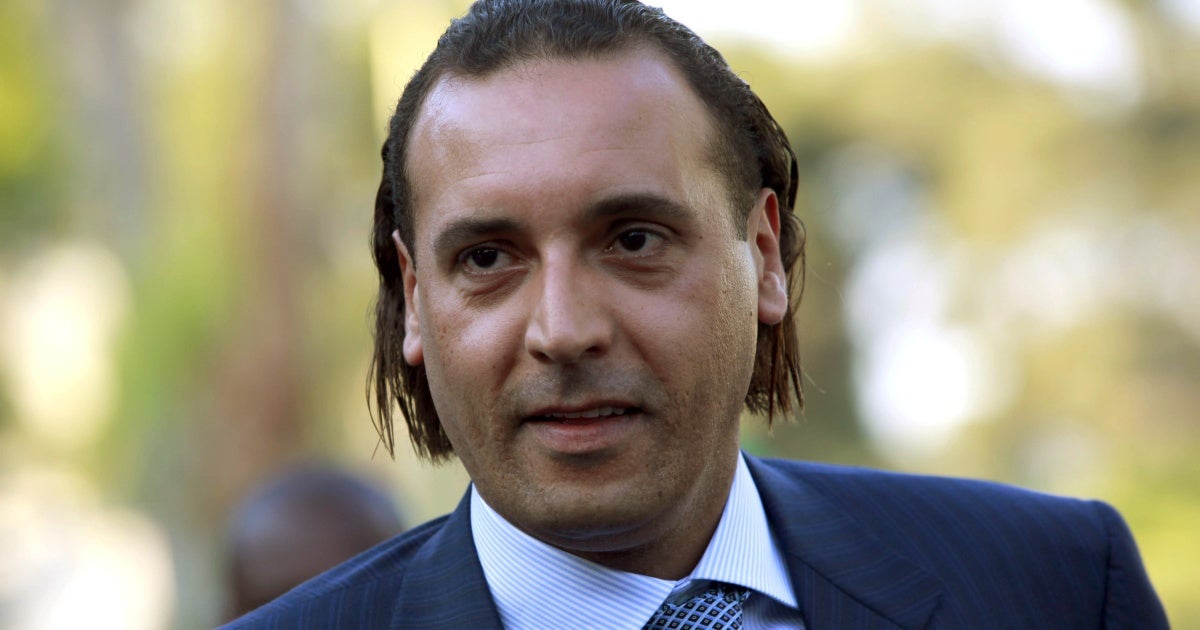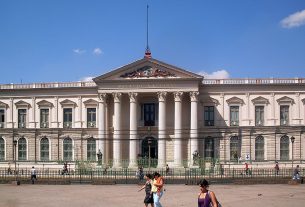(Beirut) – Lebanese authorities released Hannibal Gaddafi, the son of Libya’s former leader Muammar Gaddafi, on November 10, 2025, ending nearly 10 years of arbitrary detention without trial, Human Rights Watch said today. While judicial authorities’ decision to end Gaddafi’s unlawful treatment is a long overdue step in the right direction, they should also formally drop all baseless charges against him and provide adequate compensation for his unlawful detention, Human Rights Watch said.
The judicial investigator in the case, Zaher Hamadeh, first ordered Gaddafi’s release on October 17, but it was initially conditioned on the payment of a US$11 million bail and a two-month travel ban. Following an appeal by Gaddafi’s lawyers, judicial authorities lowered his bail to $900,000 and lifted the travel ban on November 6. Authorities released Gaddafi on November 10 but have not formally withdrawn charges relating to “concealing information” about the 1978 disappearance of Lebanese cleric Imam Moussa al-Sadr in Libya, when Gaddafi was two years old, according to two of his lawyers.
“Hannibal Gaddafi’s release from prison was a necessary step, but it comes a decade too late,” said Adam Coogle, deputy Middle East director at Human Rights Watch. “An important next step will be to formally end the sham legal case against Gaddafi and compensate him for this miscarriage of justice.”
As of August 2025, nearly 80 percent of Lebanon’s prisoners and detainees were being held without a prison sentence, according to numbers provided to Human Rights Watch by the Lebanon’s General Directorate of Internal Security Forces.
A Human Rights Watch researcher visited Gaddafi in August 2025 at the General Directorate of Internal Security Forces’ Information Branch Headquarters in Beirut, where he was held. It was the first time an international human rights organization visited Gaddafi while he was in Lebanese detention.
Lebanon’s Internal Security Forces arrested Gaddafi in December 2015 on apparently unsubstantiated allegations that he was withholding information about the disappearance of al-Sadr in Libya in 1978 along with two companions. The cleric’s fate remains a sensitive political issue in Lebanon.
Prior to his detention, Gaddafi had been primarily living in Syria with his family after fleeing Libya in 2011, during the uprising against his father’s government. But in 2015, armed men kidnapped Gaddafi in Syria near the Lebanese border after reportedly luring him to what he believed was a newspaper interview. In December 2015, Hamadeh issued an arrest warrant for Gaddafi, formally charging him with concealing information on al-Sadr’s disappearance in 2016, according to two of his lawyers.
No one should be held for 10 years in prison without trial, Human Rights Watch said. Article 9 of the International Covenant on Civil and Political Rights (ICCPR), to which Lebanon is a party, maintains that “anyone arrested or detained on a criminal charge shall be brought promptly before a judge or other officer authorized by law to exercise judicial power and shall be entitled to trial within a reasonable time or to release.” Even if released, everyone has a right to be tried without an “undue delay.” Individuals who have been subject to unlawful arrest or detention “shall have an enforceable right to compensation,” according to the ICCPR.
“Lebanese authorities should investigate and hold those responsible for Gaddafi’s ordeal accountable,” Coogle said. “They should also ensure that the rule of law is respected and that the judiciary is independent so that others do not suffer the same fate.”



